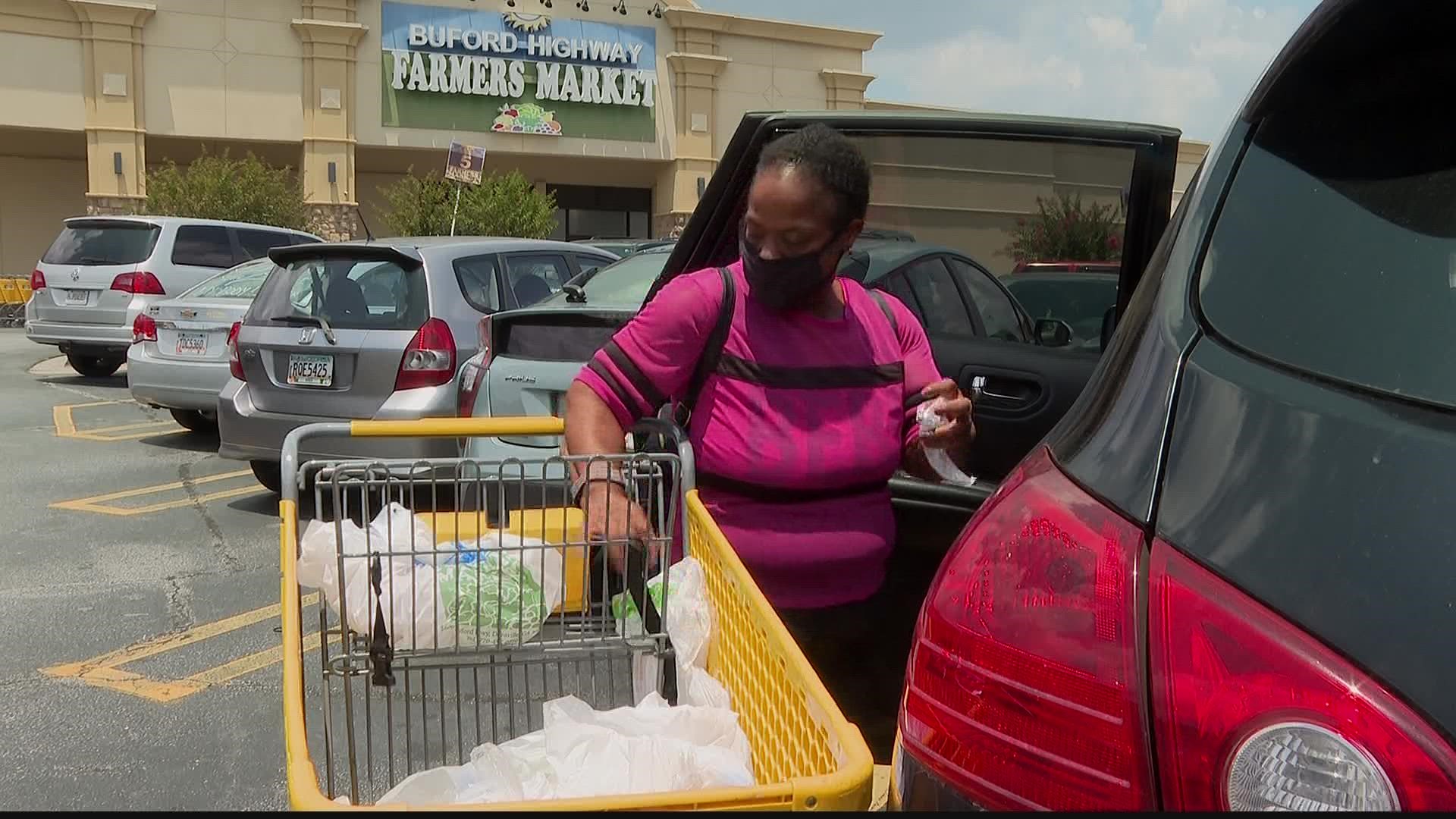DORAVILLE, Ga. — Everyone is paying more for gas and groceries. Inflation is affecting prices seemingly everywhere at a historic rate. Consumer prices soared 9.1% compared with a year earlier, the biggest yearly increase since 1981.
April Brown is getting used to the new reality. She can't buy what she used to. Brown is on a fixed income, regularly takes medication and drives hundreds of miles back and forth from Augusta to attend doctor's appointments. 11Alive caught up with Brown outside the Buford Highway Farmer's Market.
"I paid $70.67 for one person," Brown said. "I didn't come out of the store with any other meat, only fish, and that's because it's too expensive per pound."
Items like food, energy, home and gas prices altogether have spiked year over year. Dr. Solani Firasta-Vastani, a marketing professor at Emory University's Goizueta Business School, said prices rose past experts' predictions and will continue to rise.
"Either the demand is higher than the supply can keep up with or the supply is so low that it's resulting in increased prices," Vastani said. “Some of the measures that Fed has put in place so far, increasing the interest rates, don’t seem to be having an impact on the demand yet.”
The cost of rent has risen, and new and used cars are seeing a bump in prices as well. Vastani said high gas prices are affecting many other goods and services, while slowly rising wages aren't keeping up with historic inflation, high demand and short supply.
"Of course, you’re paying more as a consumer at the pump, but it costs more to transport food, run the machinery," Vastani said. "All those costs are being spread into other products and services.”
Vastani noted hidden costs behind inflation, which include companies making smaller packaging or doling out tinier portions while charging the same or more money.
Kay Suu is a chef and said she's trying to balance cost with quality by budgeting and comparing costs from store to store. Her grocery bills have increased by about $150 per week in the last year.
"You gotta plan and organize yourself, right? You have to look ahead and we have to be smart about how life is changing financially for a lot of businesses, small business, big business," Suu said. "It doesn't matter. Everybody's impacted."
Vastani said the high rate of inflation is changing consumer behavior. Many shoppers are starting to buy more generic brands or cheaper products, visit discount stores more, buy in bulk, use less and become more conscious about how much product they use. She said it's likely it could be early 2023 before prices return to normal.
Meantime, the Federal Reserve is set to raise interest rates later this month, but it could act more aggressively to counteract inflation. That, in turn, will make borrowing money for things like credit cards, loans and mortgages more expensive.
“Making money a little more expensive, slowing down some of the demand, and as supply chain issues continue to alleviate, we’ve seen relief come through many of those products and services," Vastani said. "The inflation, when it lasts for such a long time, it becomes sticky into the system and it’s harder to backtrack to original price levels.”
As for Brown, she's worried long-lasting inflation could make what were once necessary choices just to get by.
"It'll hit me hard," Brown said. "How can I afford it? What can I do? Do you pay your mortgage? Your insurance? What do you do?"

